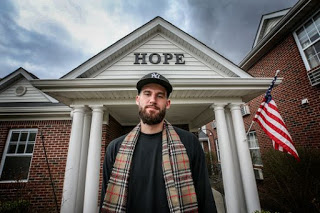Health departments scramble to fight hepatitis A outbreak

Peyton Manning had hepatitis C but didn’t know about hepatitis
A or the outbreak until it hit him. (Michael Clevenger, Courier Journal)
—–
The nation’s largest outbreak of hepatitis A has slacked off somewhat in Kentucky, but remains a threat and local health departments are dipping into their reserves and taking unusual steps to get people vaccinated for the liver disease, which has killed 44 Kentuckians during the outbreak.
The medical director of the Lake Cumberland District Health Department doesn’t usually give vaccinations, but each of her counties only had one or two nurses to do that, so Dr. Christine Weyman started giving shots, too, Laura Ungar and Chris Kenning report for the Louisville Courier Journal.
“She has gone out to vaccinate drug users who largely were spreading the virus,” they report. “She once went so far as to chase two men down a street to persuade them to get the shot. (They weren’t interested.) She also went to the crowded Pulaski County Detention Center, realizing the 213-bed jail with more than 400 inmates could be an excellent incubator for the virus. Right outside the jailer’s office door, her health department placed a refrigerator for the sole purpose of storing vaccines.”
“In many ways,” Ungar and Kenning wrote, the Somerset-based department “is a microcosm of rural Kentucky’s continuing struggle with hepatitis A. What’s happening there reflects how Kentucky’s communities with limited resources are quietly battling the nation’s largest and deadliest outbreak — learning as they go and altering their strategies to meet the many challenges they face.”
The state has averaged 76 hepatitis A cases per week this year, “sometimes reaching more than 90 a week, compared with 151 a week at its peak in early November,” the CJ reports, but “Kathleen Winter, an epidemiologist at the University of Kentucky, said a recent downward curve in the outbreak doesn’t necessarily mean it’s waning.”
“We still need robust intervention,” Winter told the newspaper. “It’s still too early to say whether it’s really winding down. We still have individuals getting sick, being hospitalized and dying.”
The story’s first example was Peyton Manning, 27, “who was sleeping behind a Walmart in Lexington and spending his days shooting meth and heroin. Late last year, he admitted himself to The Healing Place in Campbellsville. Then a virus hit him. He couldn’t sleep. He couldn’t keep any food down.” He went to the UK hospital and recovered at his mother’s home.
 |
| Ranges of health department reserves that could be used to pay Kentucky Employees Retirement System obligations. About half of the counties are in district departments; others are independent. |